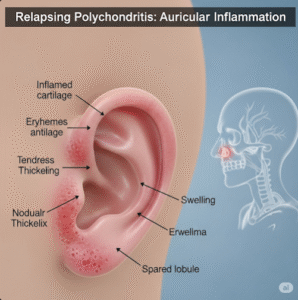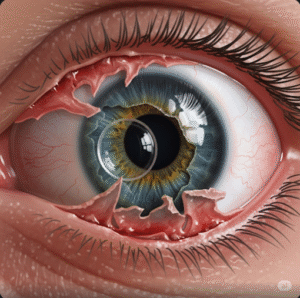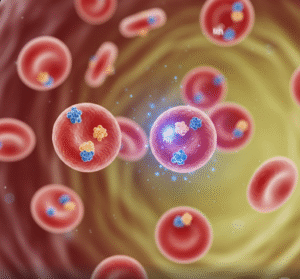Overview
Apathy is a condition characterized by a lack of motivation, interest, or emotional responsiveness in daily activities. It is commonly observed in psychiatric disorders such as depression, schizophrenia, and neurological conditions including Parkinson’s disease, Alzheimer’s disease, and stroke.
Individuals with apathy may appear indifferent, emotionally flat, or disengaged from personal, social, or professional responsibilities. This can lead to impaired quality of life, social isolation, and reduced functional independence. In South Korea, hospitals and mental health clinics provide comprehensive care for apathy, including assessment, therapy, medication management, and rehabilitation programs.
Key Facts
Highlights:
➡️ Apathy involves diminished motivation and reduced emotional responsiveness.
➡️ It is a common symptom in neuropsychiatric and neurodegenerative disorders.
➡️ Apathy can affect social interactions, work performance, and personal care.
➡️ Early recognition and intervention are crucial to prevent social withdrawal and functional decline.
➡️ South Korean mental health facilities offer multidisciplinary approaches to address apathy effectively.
What is Apathy?
Apathy is more than mere laziness; it is a clinical syndrome characterized by reduced goal-directed behavior, cognitive engagement, and emotional expression.
It can manifest in three main domains:
- Behavioral Apathy: Lack of initiative to perform tasks or participate in activities.
- Cognitive Apathy: Reduced interest or engagement in thinking, planning, or problem-solving.
- Emotional Apathy: Limited emotional responses to positive or negative events.
Apathy is often distinguished from depression by the absence of significant sadness or hopelessness, although the two conditions can coexist.
What Symptoms are Related to Apathy?
Symptoms of apathy can be subtle or pronounced, including:
- Reduced motivation to start or complete tasks
- Social withdrawal or decreased participation in social activities
- Lack of interest in hobbies, work, or personal care
- Emotional flattening or blunted responses to events
- Difficulty making decisions or setting goals
- Neglect of responsibilities or personal hygiene
- Low energy and diminished initiative
What Causes / Possible Causes of Apathy?
Highlights:
➡️ Neurological Disorders: Alzheimer’s disease, Parkinson’s disease, stroke, and traumatic brain injury.
➡️ Psychiatric Conditions: Depression, schizophrenia, and bipolar disorder.
➡️ Chronic Illness: Chronic pain, heart disease, or metabolic disorders can contribute to reduced motivation.
➡️ Medication Side Effects: Certain antipsychotics, sedatives, or antidepressants may cause emotional blunting.
➡️ Environmental Factors: Lack of social stimulation or chronic stress.
➡️ Neurochemical Imbalance: Dysfunction in dopamine and other neurotransmitter pathways involved in reward and motivation.
➡️ Aging: Age-related changes in the brain may contribute to apathy in elderly individuals.
When Should I See My Doctor?
Highlights:
➡️ If persistent lack of motivation or interest affects daily life.
➡️ If apathy is accompanied by cognitive changes, memory issues, or emotional flattening.
➡️ If social withdrawal, neglect of responsibilities, or reduced personal care occurs.
➡️ For early assessment in individuals with neurological or psychiatric conditions.
➡️ If apathy impacts work, relationships, or overall quality of life.
➡️ To differentiate apathy from depression or other mood disorders.
Care and Treatment
Management of apathy involves addressing underlying causes, enhancing motivation, and supporting emotional engagement.
Highlights:
➡️ Comprehensive Assessment: Psychiatric and neurological evaluation to identify the root cause.
➡️ Medications: Dopaminergic agents, stimulants, or other medications may be prescribed to enhance motivation.
➡️ Psychotherapy: Cognitive-behavioral therapy (CBT), motivational interviewing, and behavioral activation.
➡️ Social Engagement: Structured activities, group therapy, and community involvement.
➡️ Rehabilitation Programs: Occupational therapy and goal-oriented interventions to restore functionality.
➡️ Lifestyle Interventions: Physical exercise, structured routines, and mindfulness practices.
➡️ Caregiver Support: Education and involvement of family members to encourage participation and engagement.
Treatment Options in Korea
South Korea offers advanced care for apathy through mental health clinics, neurological centers, and rehabilitation facilities.
Highlights:
➡️ Multidisciplinary Evaluation: Comprehensive assessment by psychiatrists, neurologists, and psychologists.
➡️ Personalized Medication Plans: Pharmacological interventions targeting neurotransmitter pathways and underlying conditions.
➡️ Therapy Programs: CBT, motivational therapy, and social skills training tailored to individual needs.
➡️ Rehabilitation Services: Occupational therapy, structured daily routines, and engagement activities.
➡️ Integrated Mental Health Care: Collaboration between specialists for holistic management of apathy.
➡️ Medical Tourism Support: Multilingual services, structured treatment packages, and follow-up care for international patients.
➡️ Patient and Caregiver Education: Guidance on recognizing symptoms, promoting engagement, and managing daily challenges.












